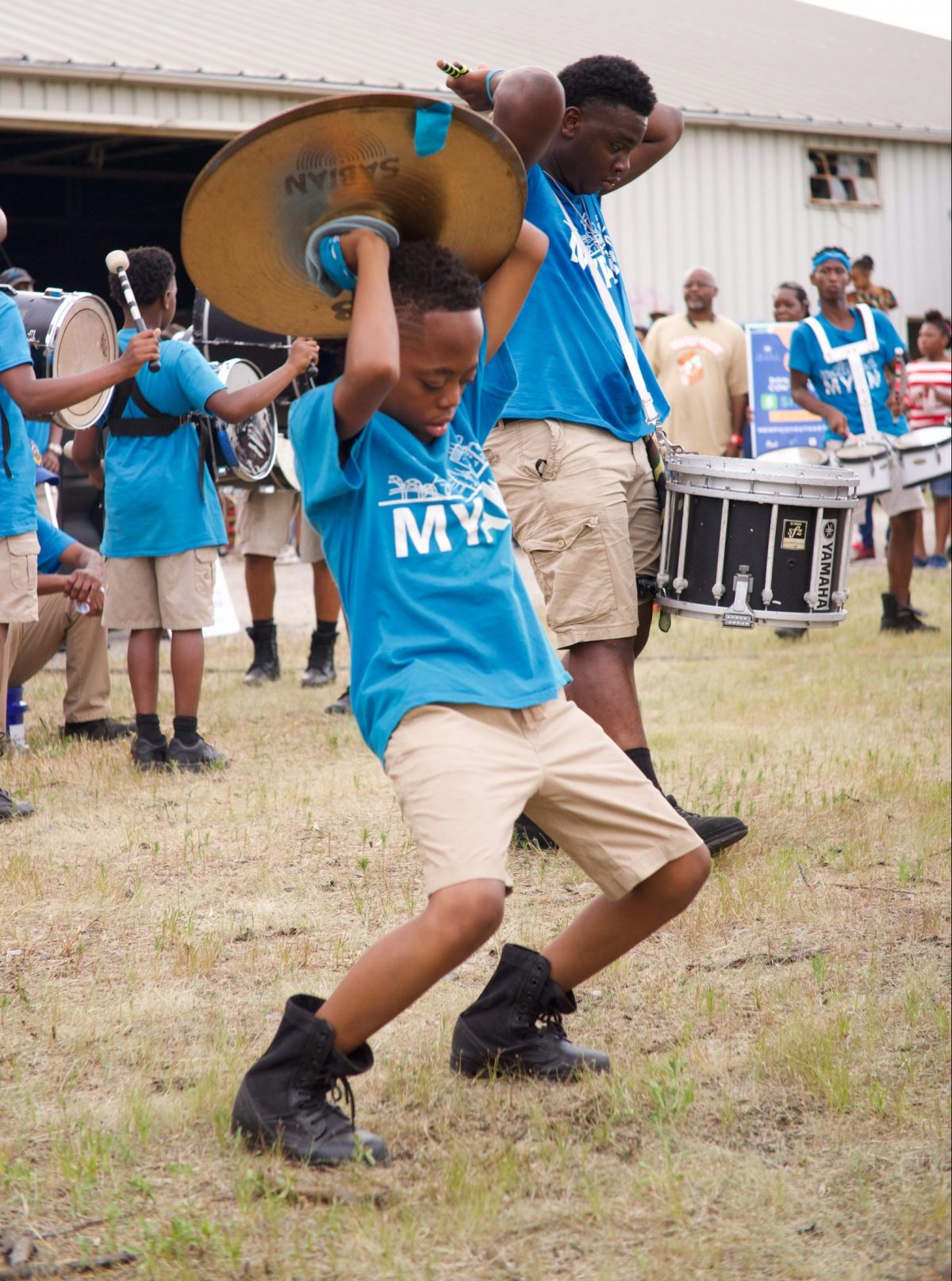Family reunions have long been staples in the Black community. Scholars are unclear as to when family reunions came to be, but many note that as a result of the Great Migration, many Black families were separated, causing them to hold large gatherings to reunite and rekindle.
With fellowship and celebration being major themes of family reunions, it’s a fitting theme for TONE’s Juneteenth weekend. TONE’s chief storyteller, Nubia Yasin, explains that the family reunion theme is reflective of the culture that TONE would like to see built “across the creative community, across the Black community in general, whether you see yourself as a creator or not.
“TONE is very special because it’s not like we’re doing this work for the community, but with the community. With that being said, we don’t know everything. We don’t know everything, and we’re going to get stuff wrong, so we’re leaning on the community to fill in those gaps.”
Yasin says it’s also about collaboration, which she believes that family is about.
“Family is about interconnectivity, it’s about collaboration, and that’s why the theme for our Juneteenth festival every year is a ‘family reunion,’ because we really want folks to feel connected to this work like they would their family.”
Yasin explains that this event serves as an invitation for those who have left the South to come back and find solace and familiarity. In fact, executive director Victoria Jones “hopes that this will be an opportunity for ‘all our cousins,’ so to speak, to come back home and celebrate with their Memphis family.”
“It is for Memphis, but the goal is for the work that we do here will make Memphis a hub for Black creatives across the country and internationally,” Jones says. “One only needs to look at the story of being Black folks in America for a couple of seconds to see how central Memphis is to that story.”
The two-day celebration is jam-packed with events starting with a sold-out Afroturism-themed Juneteenth gala, shortly followed by an afterparty on the Mississippi Queen #3 Riverboat. The weekend culminates on Sunday, June 19th, with the Juneteenth Family Reunion festival in Orange Mound.
According to Yasin, Orange Mound serves as the prime location for an event that celebrates the rich history and legacy of Black people.
“It’s the oldest Black neighborhood, built by Black folks for Black folks, in the country,” Yasin says. “Memphis is a city that is inextricably linked to the story of being Black in America.”
The story of being Black in America can only be told best by those who’ve experienced it. It’s a story marked by continuous triumph over adversity, which is often defined by systemic challenges, and unequal protection from the powers that be.
A heartbreaking chapter was recently added to that story, when a gunman opened fire at Tops Friendly Market Store, which according to NPR, is the only Black-run grocery store in Buffalo, New York. This incident left 10 people killed, three injured, and a community shaken by domestic terrorism.
“The nature of being Black in America is like a persistent state of a mix of emotions. Whether that be fear or anger, or a lot of times apathy, because of fear and anger,” Yasin explains.
“If we stopped ourselves from shining, if we stopped ourselves from smiling, if we stopped ourselves from laughing and celebrating every time there is a threat of danger, we would never have moments to smile and dance and shine.”
Yasin believes it is important for Black people to claim moments to be happy, which is why she believes it is imperative for a Juneteenth celebration to persist, despite recent events in America.
“Systems of oppression are as evident as ever, and I think it’s important to celebrate the little things that make us smile, and build culture around that,” Yasin says. “That’s what makes the hard work of beating back those systems sustainable.”
